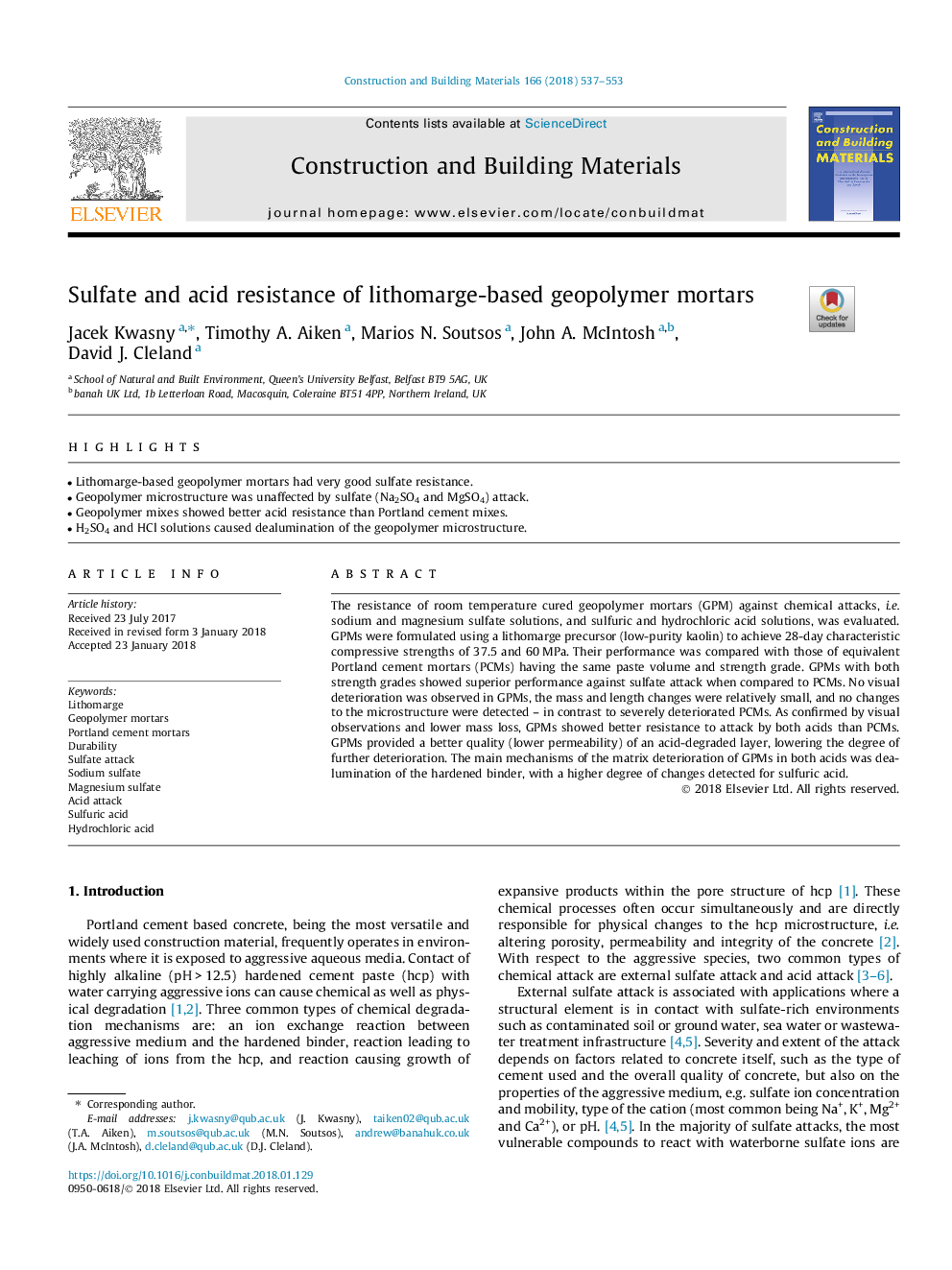| Article ID | Journal | Published Year | Pages | File Type |
|---|---|---|---|---|
| 6715338 | Construction and Building Materials | 2018 | 17 Pages |
Abstract
The resistance of room temperature cured geopolymer mortars (GPM) against chemical attacks, i.e. sodium and magnesium sulfate solutions, and sulfuric and hydrochloric acid solutions, was evaluated. GPMs were formulated using a lithomarge precursor (low-purity kaolin) to achieve 28-day characteristic compressive strengths of 37.5 and 60â¯MPa. Their performance was compared with those of equivalent Portland cement mortars (PCMs) having the same paste volume and strength grade. GPMs with both strength grades showed superior performance against sulfate attack when compared to PCMs. No visual deterioration was observed in GPMs, the mass and length changes were relatively small, and no changes to the microstructure were detected - in contrast to severely deteriorated PCMs. As confirmed by visual observations and lower mass loss, GPMs showed better resistance to attack by both acids than PCMs. GPMs provided a better quality (lower permeability) of an acid-degraded layer, lowering the degree of further deterioration. The main mechanisms of the matrix deterioration of GPMs in both acids was dealumination of the hardened binder, with a higher degree of changes detected for sulfuric acid.
Keywords
Related Topics
Physical Sciences and Engineering
Engineering
Civil and Structural Engineering
Authors
Jacek Kwasny, Timothy A. Aiken, Marios N. Soutsos, John A. McIntosh, David J. Cleland,
